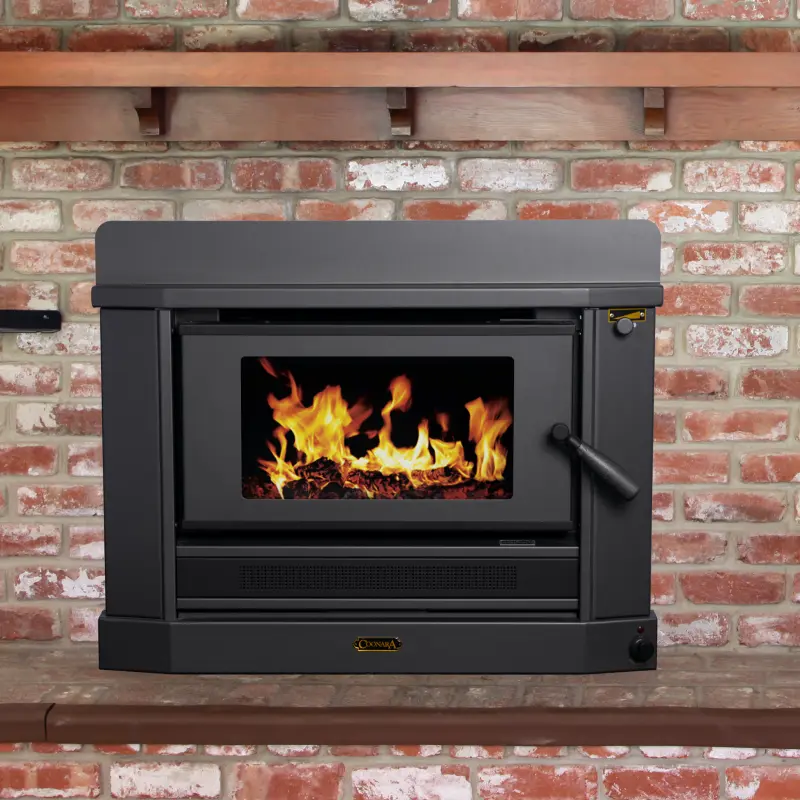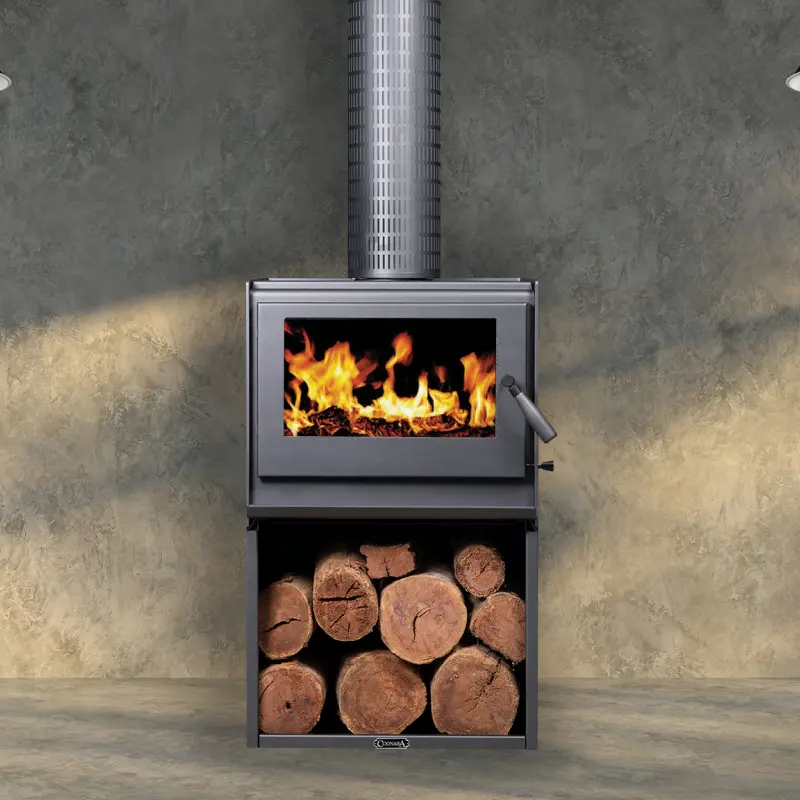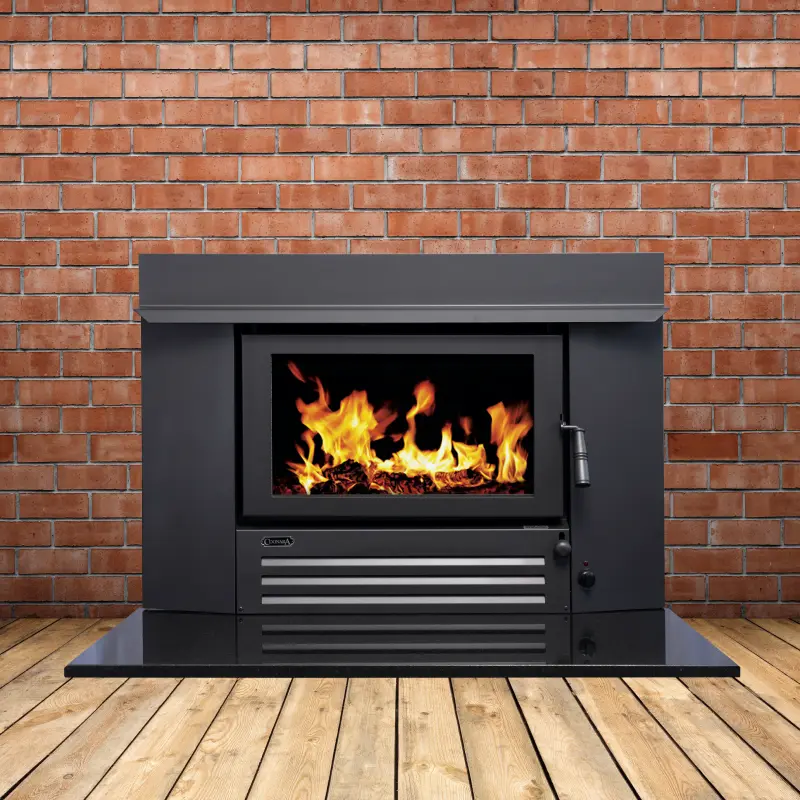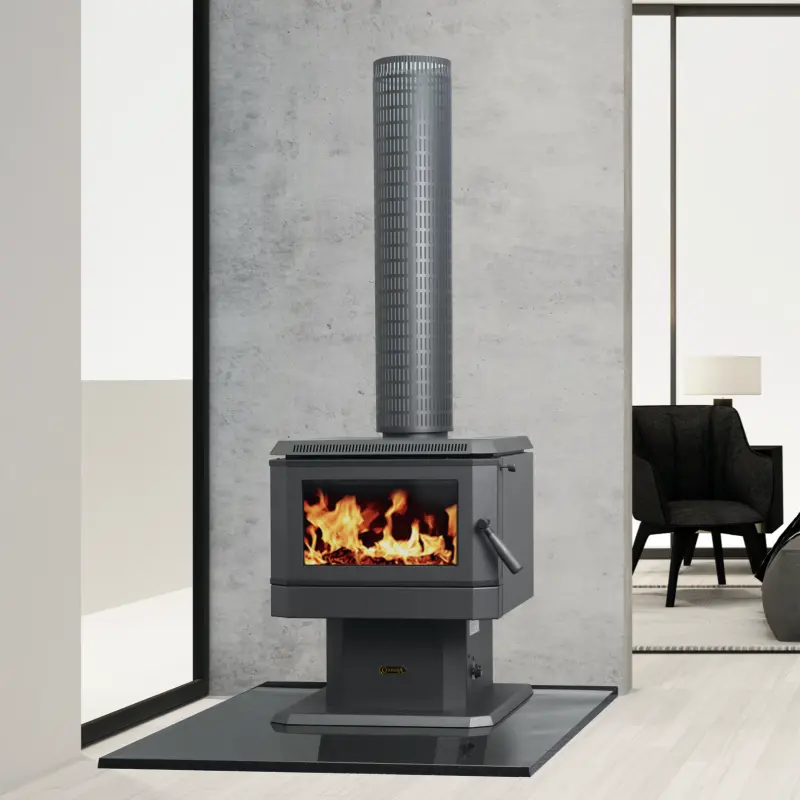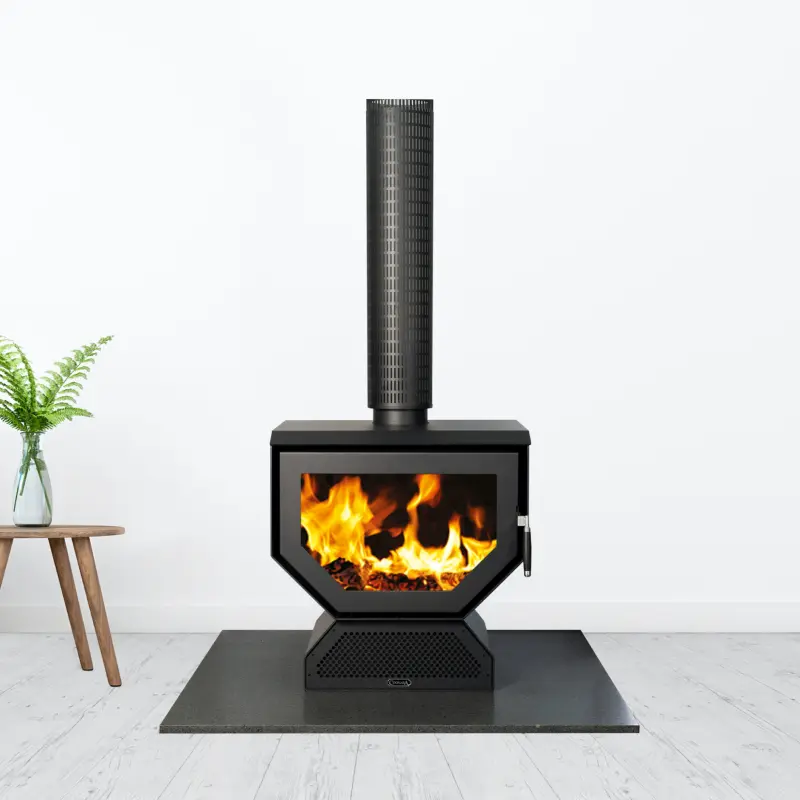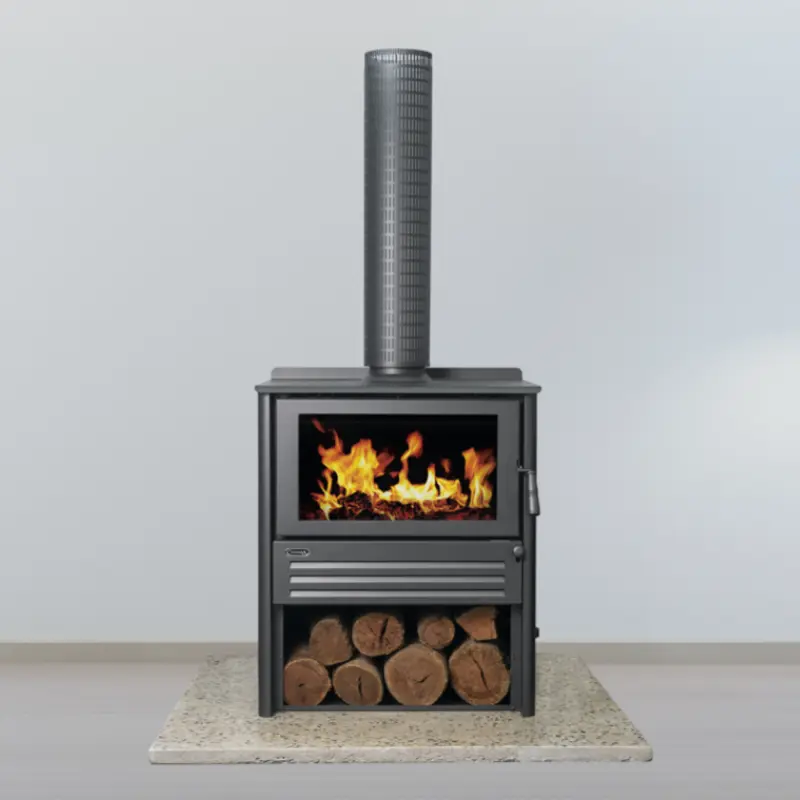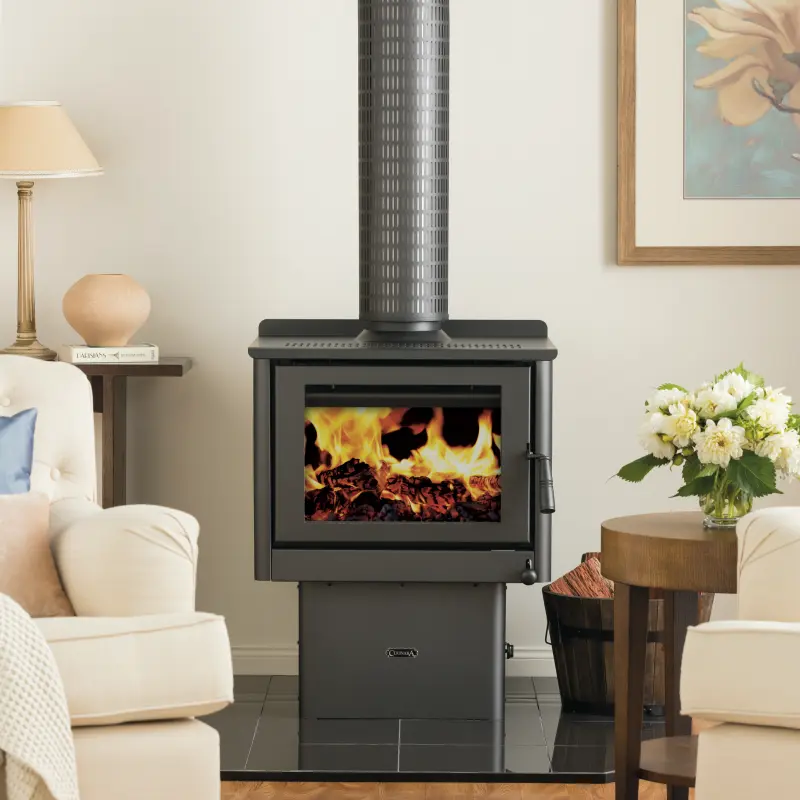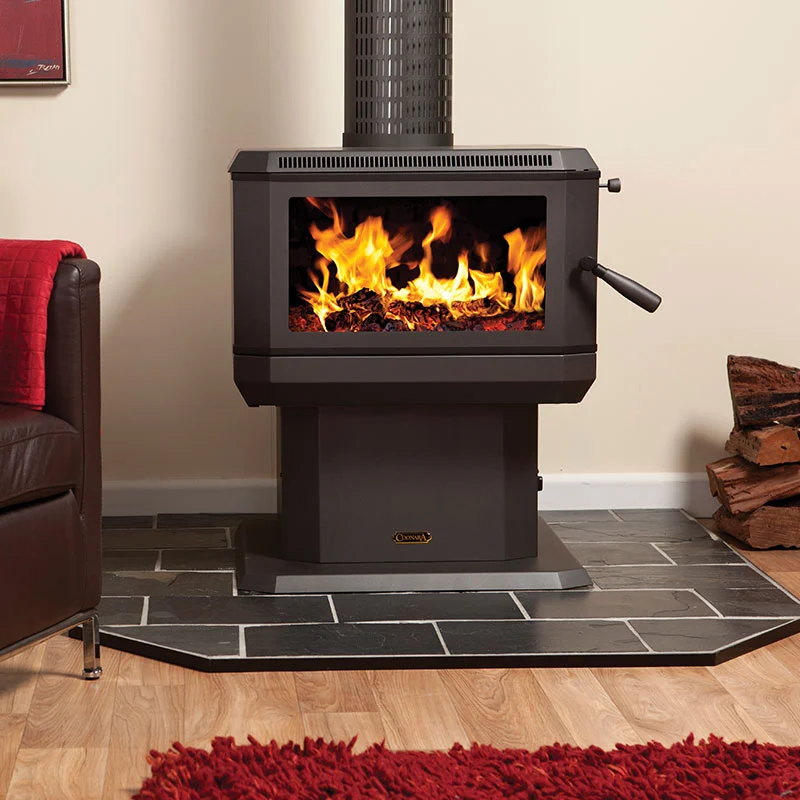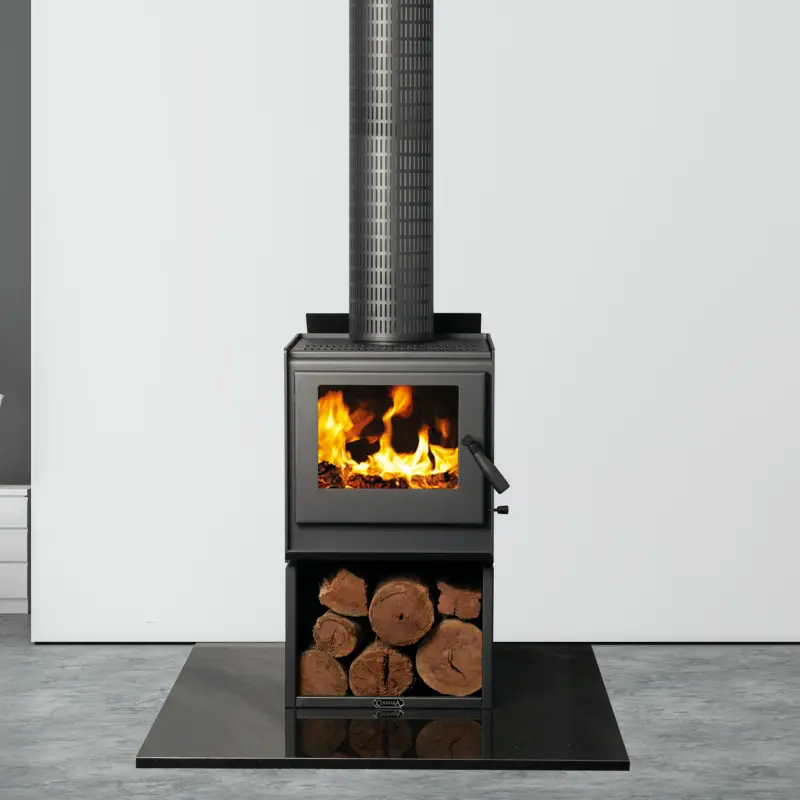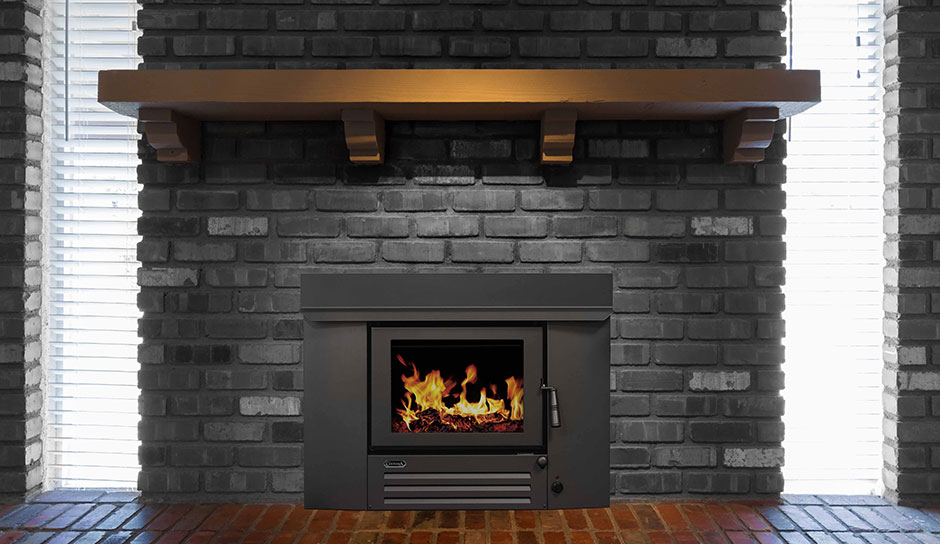Heating your home efficiently and cost-effectively is a key consideration, especially during Australia's colder months. Wood heaters have long been a favoured choice, known for their comforting warmth and captivating ambiance. But are they an economical option when it comes to keeping your home warm? Read on to discover the benefits of a wood heating solution for our home.
Understanding the Cost of Running a Wood Heater Fireplace
The running cost of wood heating can differ based on several factors. The type of wood, the heater's efficiency, and the size of the room or house being heated all play a role.
In a well-insulated Australian home, a wood heater can provide an economical solution to keep your house warm. The cost of firewood, the primary fuel source, is usually manageable, especially if you have access to your own wood. As per the Australian Home Heating Association, a tonne of firewood, which costs between $150-$250, can provide warmth throughout the winter when used efficiently. Redgum is usually more expensive per cubic metre or tonne as it burns longer and more efficiently than most other hard woods.
Efficiency of Modern Wood Heaters
Modern wood heaters are designed with efficiency at their core. They've evolved considerably from traditional open fireplaces, becoming sophisticated devices that extract the maximum heat from the wood they burn. Today’s heaters get a cleaner and more efficient burn, minimising creosote build-up and maximising heat output.
High-efficiency wood heating means less firewood consumption, lower emissions, and more warmth for your home. Most wood heaters even include fan-assisted convection features to circulate warm air around the room, reducing the amount of heat lost through the flue.
Comparing Wood Heaters to Other Heating Systems
When comparing heating options, consider installation costs, running costs, maintenance costs, and efficiency.
While wood heaters may have higher upfront costs compared to gas or electric heaters, their running costs can be lower in the long run. Gas and electric heating systems may have cheaper installation costs but often entail higher running expenses due to the continual need for electricity or gas. In contrast, the primary ongoing cost for a wood heater is firewood.
Benefits of Wood: Firewood vs. Gas Fireplace
While gas fireplaces are often praised for their convenience and clean burn, there are several reasons why you might choose a wood heater instead. There's a distinctive charm and ambiance that comes from a real wood fire that gas simply can't replicate. The comforting crackle, the mesmerising flame, and the familiar scent of burning wood create a unique, cosy atmosphere. Plus, wood is a renewable and carbon-neutral fuel source, making it a more environmentally friendly choice compared to fossil fuel-based gas heating. As for the running costs, firewood can be a cheaper fuel source than other options, particularly if you have access to a sustainable supply, such as your own woodlot or a local source. Purchasing wood is the easiest option because it means you won't have to be out in the cold chopping wood yourself!
The Environmental Perspective
Energy efficiency is on everyone's mind these days, not only for cost, but for environmental reasons. Wood heaters offer an eco-friendly heating option. Wood is a renewable source of energy and produces fewer emissions compared to fossil fuels when sourced sustainably. While burning wood does emit carbon dioxide, it’s part of a natural cycle: trees absorb carbon dioxide as they grow, and this carbon dioxide is released back into the atmosphere when the wood is burned. This cycle significantly reduces the carbon footprint compared to burning fossil fuels.
The Comfort Factor and Added Benefits of Wood Heaters
Beyond cost-effectiveness and efficiency, wood heaters offer unique comfort benefits. They create a cosy ambiance that is difficult to replicate with other heating methods. The gentle crackle of burning wood and the soothing radiant heat add a comforting warmth to your home that other heating solutions, like a gas heater, struggle to match. Using this more traditional method is a great way to heat your abode and create a central gathering place to share time with family and friends.
Maximising the Efficiency of Your Wood Heater
To ensure you're getting the most bang for your buck, consider the following tips:
- Use Dry Wood: Make sure to burn dry, seasoned wood. Wet or unseasoned wood produces a lot of smoke and doesn't burn efficiently. Using a moisture meter can help ensure the wood has the right moisture content.
- Regular Maintenance: Maintain your wood heater as per the manufacturer's instructions. Regularly removing ash and soot and getting your flue cleaned by a professional chimney sweep can keep your heater running optimally.
- Proper Insulation: Make sure your home is well-insulated. Good insulation retains the heat generated by your wood heater, reducing the need for constant refuelling and helping you save on wood fuel costs.
- Use the Right Size Heater: The size of the heater should align with the size of the space you're trying to heat. A heater that is too small will need to work harder (burn more wood) to heat a large space, and a heater that is too big can waste energy.
Conclusion: Weighing Up the Cost and Benefits
Determining whether a wood heater is a cost-efficient choice depends on individual circumstances. You'll need to consider factors like the size of your home, how well it is insulated, your access to fire wood, the heater's efficiency, and your personal heating preferences. However, for many Australians, wood heaters offer a cost-conscious, environmentally friendly, and wonderfully cosy way to heat their homes.
Remember, heating your home involves more than just cost. It's about the comfort, ambiance, and sustainable living practices that align with your lifestyle. So, consider these aspects when making your heating choice.
Final Thoughts
Installing a wood heater can be a cost-effective, cosy, and environmentally friendly form of heating, and a great way to warm your home - it can often be cheaper to heat your space with this method than some other popular choices and can save you money in the long run. Remember to consider the whole picture when deciding on your heating solution. Upfront costs, ongoing costs, maintenance, the environmental impact, choosing a system capable of heating your space, and the comfort provided by the heating system all play a part.
With heating costs being a subject you should definitely be concerned about, careful consideration and smart practises can make your wood heater an economical and enjoyable asset in your home, providing you with warmth and comfort for many winters to come. So if you're looking for a way to heat your home that is budget friendly, energy-efficient and adds a special ambience to your space.
Heat Your Home and Keep Warm with a Cost-Effective Heating Solution from Coonara
